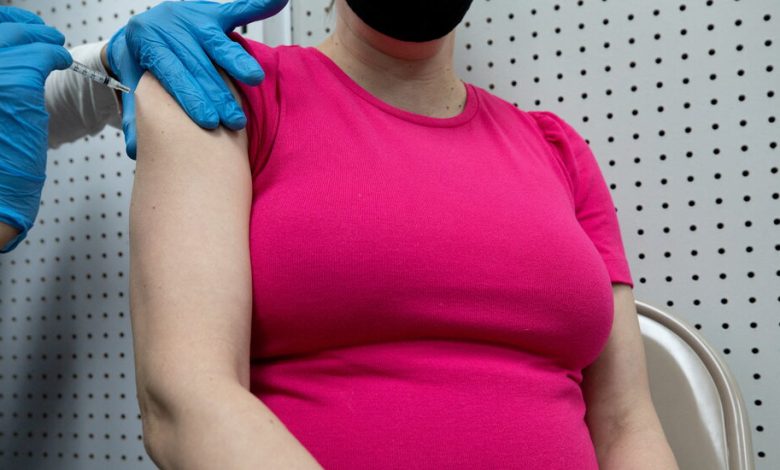Pregnancy and Covid: What Women Need to Know

Pregnant women are particularly vulnerable to Covid-19, and new government data show that maternal mortality rose sharply in 2021, the second year of the pandemic. Here’s what women need to know to keep themselves safe.
If I’m pregnant or trying to get pregnant, how do I protect myself from Covid?
The most important step is to get vaccinated if you have not done so already, and to make sure you are up-to-date on your booster shots. Covid can develop into a life-threatening condition during any pregnancy, but deaths and severe illnesses have been reported more often among women who were not vaccinated.
The vaccines are effective during pregnancy, and a growing body of evidence tracking pregnancy outcomes has found no safety concerns.
You can take other steps to protect yourself, like masking in public spaces, limiting your contacts, physical distancing and practicing good hand hygiene.
What factors increase my risk?
Pregnancy by itself increases the odds of developing severe Covid for a number of biological and physiological reasons. But that risk can be amplified by pre-existing chronic conditions, like diabetes or high blood pressure.
Pregnant women with these conditions should consider taking extra precautions to avoid an infection, like staying away from crowds and people who are sick.
Other factors that elevate a pregnant woman’s risk: age over 25; being overweight; chronic lung, liver or kidney disease; a heart condition; physical inactivity; and being a former or current smoker.
The vulnerabilities don’t disappear immediately after giving birth. Women remain more susceptible through the postpartum period and should continue to take precautions.
Covid infections also increase the risk of a premature birth, which can lead to serious health problems for a baby. Infants born to infected mothers have a slightly higher risk of congenital heart defects, heart rhythm abnormalities and metabolic and respiratory disorders, according to an analysis by the research arm of Epic, the electronic medical records company.
What are the symptoms to look out for?
If you’re pregnant or have recently given birth and have a fever, cough, trouble breathing, runny nose or other symptoms suggestive of Covid, you should take a Covid test and contact your doctor.
The American College of Obstetricians and Gynecologists says you should call 911 or go to a hospital right away if you have any of the following symptoms:
-
Trouble breathing or shortness of breath (more than what has been normal for you during pregnancy)
-
Ongoing pain or pressure in the chest
-
Sudden confusion
-
An inability to respond to others
-
Blue lips or face
I’m pregnant and just tested positive for Covid. What now?
Call your doctor or midwife right away. Your doctor may recommend a medication like Paxlovid, an antiviral therapy that reduces the risk of hospitalization and death and is safe for use during pregnancy. The treatment must be initiated within five days of the first symptoms.
Since the Omicron variant became dominant, most people experience milder illnesses. But Covid still increases the odds of hospitalization and premature birth for pregnant women. Even if you have a mild bout, you may have symptoms for a prolonged period.
